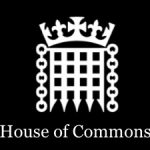The Capillary Wave

# 4. How You Became The Government
A Capillary Wave Article Via: C M EDWARDS October 2023
A Brief Explanation Of What It Means If You Have A Representative At Parliament And Why Ignorance Of The Law Is No Excuse

Introduction
There is so much confusion out there in the general population about how law and governance actually works, and how we are actually governed in reality. This was brought to bear in recent times as Covid restrictions and mandates were enforced around the world, and now with various “climate change initiatives” like: ULEZ, and 20 mph zones which are causing hardship to many communities.
Around the “Covid 19 period”, I spent a lot of time on various social media platforms, and there were thousands of followers of posts and articles proclaiming that “a mandate is not law”, and “I do not consent to be governed,” and there were many petitions going around asking for signatories. All of which are the opposite to what citizens need to do in order to find a real solution to the perceived government problems. This platform will show you very clearly why those assertions were incorrect, and we also discuss the various solutions in other articles here. In the members section here we take you through various case studies and show how ULEZ, and parking fines can easily be tackled using the information which has been shared publicly at the Home Page. Once we explain the fundamentals of governance to you, you will see the tricks that the government, and the legal profession use on you via our case study examples. When you see the slight of hand used upon us, and understand the problem, it is often easy to work out the solution.
It was sad and somewhat frustrating for me, watching all of these well meaning persons trying their best to maintain their family business, or way of life, in the face of government induced difficulty. Ultimately these people didn’t really know what would actually be an effective way of avoiding any perceived forced mandates; because they did not understand the basics about how they were being governed, and do not really understand the difference between what the UK is, and Britain; the truth, will I am sure surprise many of you. The UNITED KINGDOM is a creation of the law, a legal fiction; an ens legis:
Word Index: Ens Legis
In more recent times we now have the “low emissions zones” around the various cities (ULEZ), and enforced 20 mph travel speed limits in Wales (UK). Usually the first response to these measures is to write to, or petition your MP. This is not a good move as I will explain, and would only be a repeat of the mistakes of the “Covid era”. This article will show you, and explain with evidence, why writing to your MP is a bad idea. The best option available to you is actually a counter intuitive one, as I hope you will learn here.
I hope these public articles which I have written will set the record straight, and inform everyone that reads them about how Law and Governance really operates and effects your daily life. I truly hope all of the years of study I have done, and the many court cases that I have been involved in, will be a huge benefit to all of you who were trying valiantly to save your business in the face of forced lockdowns; and for those of you whose family were put under extreme pressure, or torn apart during this period. I hope my work helps you better understand what was actually happening in the country during that time, and now, to help you to avoid these ULEZ, and climate charges which can be crippling to the ordinary person.
My articles here will show you how you are governed, and show you the tricks that the legal world employs against you on a daily basis; understanding these tricks will vastly improve your way of life. It will enable you to take back some control.
Ignorance of the Law is no Excuse – But Why is That?
We have all most likely at some point in our lives heard the saying “ignorance of the law is no excuse”, it usually comes from some authoritative figure who is scorning some person who may have infringed on some minor rule that they had no idea existed. Yet, have you ever heard anyone explain why this is so, why is this the case? Just why is it that you are deemed to know every single law that has ever been passed? The answer is not as complicated as you might think.
This article aims to show you precisely why it is that: ignorance of the law is no excuse, and to explain why it is that you are deemed to know, and understand, all of the laws that were ever enacted, and why it is that your ignorance of the law can not be relied upon as a defence.
The explanation is more than simple willful blindness, which is where a person seeks to avoid civil or criminal liability for a wrongful act, by intentionally keeping themselves ignorant of the facts that would otherwise make them liable.
You can not plead ignorance of the law, precisely because you are someone that is responsible for the creation and execution of the law. Therefore, you can not be deemed to be ignorant of it. The person that created the law, and who is therefore responsible for it, is you. Confused? Read on…
Firstly, let me make clear what that “saying” actually is. It is not a “saying” per se, but it is actually a legal maxim: the original latin is: “ignorantia juris non excusat”. A maxim is a “statement of self evident truth, the greatest or chief premise / proposition, one which is general and absolute”. In other more simple words: it is a given, there is no getting around it, it is an irrefutable truth.
But why is it that you are deemed to know all of the laws ever passed? Well citizen, that is an interesting question, for which the answer will be explained below.
How You Became The Government
Legislation for the: UNITED KINGDOM is passed at the Palace of Westminster which is the meeting place for both the House of Commons and the House of Lords. If you are a citizen of the: UNITED KINGDOM then you; by your [in]actions and consent, have granted jurisdiction (control) for the legislation passed at Westminster, to become the laws which you have agreed to be governed by. A citizen will have a National Insurance Number and be paying various taxes that are payable by the citizenry. All of these things were either applied for by you the citizen, or accepted in some way by your actions, or by your inactions: your acquiescence.
If you are an active voting citizen of the: UNITED KINGDOM, or someone that has at one time registered to vote, and are on the electoral roll, then you will have a Member of Parliament (MP) who represents you at Parliament, and you will therefore be considered as consenting to the Parliamentary process. Your Member of Parliament serves in the House of Commons, which is the lower house of the Parliament of the United Kingdom. Officially the first duty of an MP is to Great Britain, the second is to their constituent (you), and third duty is to their party organisation.
Your Chosen Rank and Title
If you have an MP, it follows that you are a member of the House of Commons, and you are then in fact what is known as a commoner; because you registered “your name” on the electoral roll, and you voted for an MP, and sent this person to the House of Commons as your representative. It then follows that you are the government that they are representing.
Now that you are a commoner; which is a member of the House of Commons which enacts bills to become legislation, and law; you are deemed to understand this process. As a commoner, you are not only a member part, but you also have a representative serving on your behalf, at your request, at the House of Commons. When you became a commoner you received a rank and a title in that new House/ society. Your rank is “commoner” and your title for that rank is Master; you may be more familiar with that title written as: Mr, Messers, Mrs or Ms. The title you have chosen for yourself belongs to that of the lowest rank in your newly chosen society, a member of the Third Estate of the Realm. That does not sound like a wise move.
- Word Index: Common
- Word Index: Person
You Are The Government
There are some 650 MP’s that meet at the House of Commons which is the Lower House. These MP’s are the representatives of their constituents that voted for them to go to Parliament from around the various districts of the country. These are your representatives at Parliament.
These MP’s are the ones we usually point at and say are the government, when in fact all they are is your representatives. You are the government that they represent. Your representative is overseen by, and is accountable to: Parliament. The Executive (cabinet ministers) carry out the orders of the government (you). In short: the government creates the orders and bills, and the Executive carries out the wishes of the government, and ensures that the laws you enacted are adhered to, and where they are broken they ensure there is a police force to find the perpetrator, a judiciary to hear the case, and a prison system to deal with the criminals etc. The Rt Hon Jacob Rees-Mogg explains some of this very succinctly in his own words below:
• Here The Rt Hon Jacob Rees-Mogg explains where sovereignty comes from: Jacob Rees-Mogg – Sovereignty
• Here the Rt Hon Jacob Rees-Mogg goes on to explain the role of the Executive and government: Jacob Rees-Mogg – Executive
The Executive act upon the things that you (through your representative) have given them the mandate to be done and carried out on your behalf; including overseeing existing laws, and issuing the mandates on your behalf, which in turn govern your everyday life. You make and oversee the laws which govern you, you are the master (Mr,Mrs)
So perhaps you might now be able to understand and see that; ignorance of the law can not be an excuse, because you are part of the decision making process for the legislation, and you are responsible for the laws enacted. You are a law maker. It is therefore deemed that because you make the laws, you should understand the laws of which you are a party to making.

Medical Mandates
In recent history there has been much talk on social media about whether government mandates are in fact law, and whether mandates have to be adhered to or not. Given all of this evidence, can you now see why it may be a bad idea to protest and petition? Below is a podcast where Richard Vobes and I discuss the legal merits of protesting and petitioning:
• My Interview on the Richard Vobes Podcast Explaining Petitioning
Yes mandates are “law”, in the same way that a contract between two consenting parties becomes “law”. In a contractual situation, two parties specify their roles and duties to one another and sign paperwork to declare their agreement. If one party to the contract does not uphold what they said they would, they can be taken to court for breech of the [law] contract. It is the same with mandates and legislation, which as a citizen you agreed would be the “law”, you made a “vow”. Government mandates are obviously, and in fact, law to its consenting citizens; well, you did volunteer to become a citizen, a voter, and then sent your representative to Parliament to ensure that would be the case. Hence where the term “consent of the governed” is derived.
So in the final analysis; if you are in court for some breach of an enforcement notice, mandate, or traffic violation, it is quite likely that you are there because you have broken the very laws which you enacted and agreed to.
Members here have access to more articles, and a private forum whereby we discuss various solutions to all sorts of legal problems which people commonly face. Come and join our community.
If you feel that others would benefit from reading this article, please consider sharing it. If you would like to find out more about law and governance then you can start by reading my articles in ascending numerical order which will garner the best results for you.
More articles on Law and Governance can be read from the menu below.
If you feel like buying me a coffee, that would be greatly appreciated.
In good faith
CME